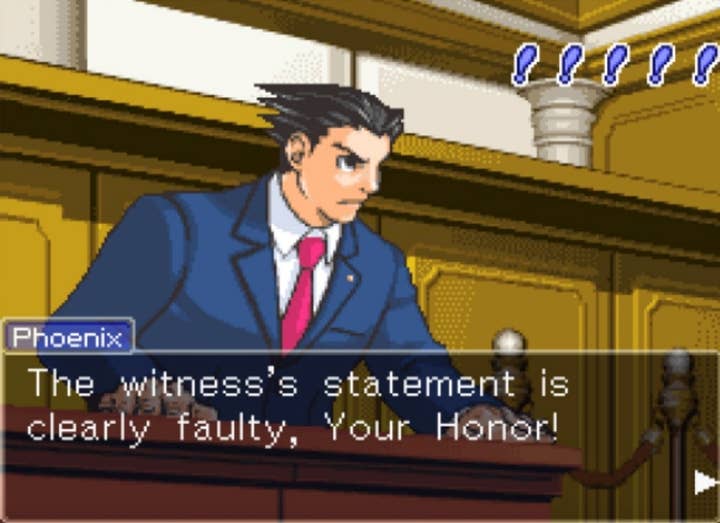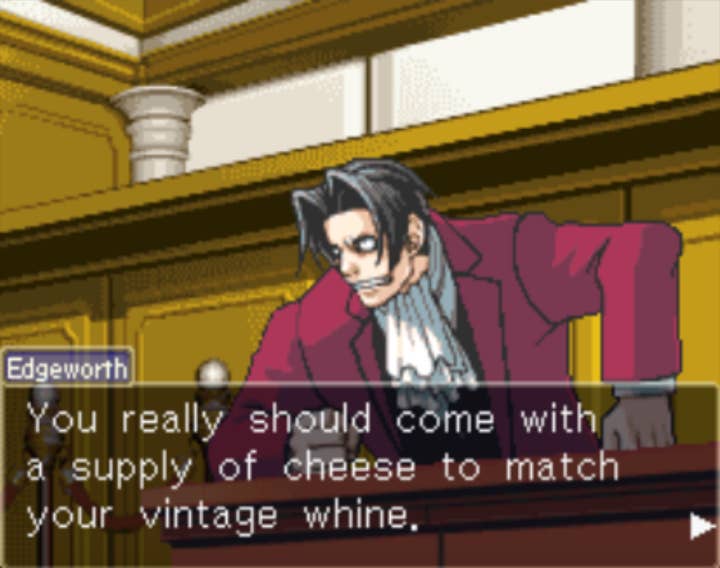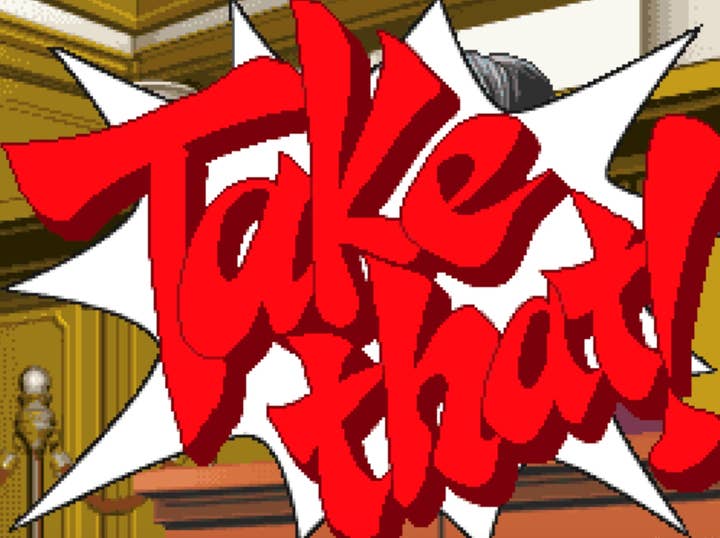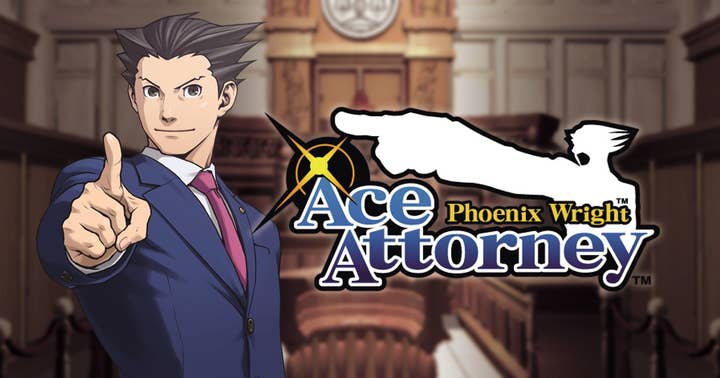Phoenix Wright aces the visual novel genre | Why I Love
Ukiyo Publishing's Paul Hann talks about the captivating qualities of Capcom's original courtroom drama
Why I Love is a series of guest editorials on GamesIndustry.biz intended to showcase the ways in which game developers appreciate each other's work. This entry was contributed by Paul Hann, CEO and co-owner of Ukiyo Publishing, the publisher behind turn based tactical RPG Battle Brothers, launching on Nintendo Switch on March 11.
I've always found it difficult to recommend visual novel games, as you have to be the kind of person willing to prefer focusing on story while potentially sacrificing gameplay. But personally, I've always had a soft spot for these types of games, especially when playing them on handheld devices, and it was in the mid 2000s with my first ever Nintendo device that I fell in love with the Ace Attorney series, starting with the DS version of its first entry, Phoenix Wright: Ace Attorney.
Ace Attorney is one of those rare visual novels that is a perfect storm of likable characters, great story, a good amount of gameplay for a visual novel, and amazing music (especially for the limitations of the DS hardware). I remember buying this to take on a nine-hour flight and was so hooked that I was only able to put it down when the battery died. I couldn't wait to get to my hotel room so I could recharge and keep playing!
For anyone unfamiliar with the game, its main focus is on Phoenix Wright, a rookie defence attorney who does whatever he can to secure his clients a "Not guilty" verdict in the courtroom. The narrative progresses through two different sections: investigations and courtroom trials. During investigation sections you have to gather information and evidence. Then during trials you cross-examine witnesses, present evidence, and answer questions from the judge, prosecutor, and the witnesses. The game is split into five cases with the fifth being introduced in the Nintendo DS version to take advantage of the handheld's touch screen. It's a brilliant addition that really sets it apart from the previous four cases.

Cases start with a classic "whodunit" opening, showing the crime being committed and flashes of the real perpetrator. It's then that you'll have to prove that your client is not guilty. For example, in the opening case, "The First Turnabout," you see the killer just after he murders his victim and states that he should pin the blame on Phoenix's friend Larry, who just happens to be the next-door neighbour of the murdered victim. Larry then turns to you as a rookie defence attorney for help in clearing his name.
Normally I would say that these openings are disappointing, as I would prefer to figure out who did it during the investigation and trial sections rather than be shown the culprit from the get go, but in later cases the game has a great way of using these intros as red herrings, adding further info to recontextualize what you've already seen. These twisty-turny mysteries are masters of misdirection.
Characters and their interactions are one of the big parts of what makes the game memorable. Every character is larger than life and has their own story to tell, each with their own motivations and backgrounds, and perhaps one of the most enjoyable aspects of the game and the series is how each case builds upon the previous relationships forged, and feeds into each other in both subtle and overt ways.
Great examples of this that I enjoy are the witty back and forth interactions between Phoenix and their prosecutor rival Miles Edgeworth, stemming from their time as classmates to the present-day courtroom battles where they duel over their conflicting ideas of justice. Another classic character is Detective Gumshoe, who starts off an incompetent investigator, but soon grows as you continue to interact with him through cases. After some time, you can't help taking a liking to him, knowing he's doing the best job he can as a man of the law.

Trials are definitely the most intense part of the game. This is probably the only visual novel I've played where I felt that I needed to pay close attention to every sentence that appears on screen, always being ready to press "Hold It!" or raise an "Objection!" when I spot something that doesn't sound right. If you don't pay close attention during these sections you can end up really getting stumped looking for the correct answer. On many occasions I found myself being too eager, sometimes figuring out a lie but presenting evidence too early before the game had reached the point where it was needed, but overall trials can feel incredibly rewarding when you're on a roll, hitting the prosecution with that right bit of evidence or statement contradiction that will uncover the truth and lead your client to victory.
Phoenix Wright's music is another major piece of its fantastic mood setting. Some games underestimate the importance music plays in investing you in the game's world, but here it's done incredibly well for the limitations of the hardware, with memorable tunes that set up the atmosphere and tension brilliantly. The best examples of this being the track changes that dynamically shift during the courtroom trials as they progress. It starts off with a slow, steady beat and as you move into cross examining, the track takes on a more tense feel. Then, when you enter the final stages of the trial and start to get the upper hand, the tempo shifts upwards drastically and you can't help but feel your blood pumping as you edge closer and closer to a clutch victory.
Not many games can leave a truly lasting impression and yet, 15 years after its original European release, I still look back on Phoenix Wright: Ace Attorney as one of my favourite visual novels and one of the more memorable game series I've played in the genre. If you enjoy great stories and interesting characters, then I would definitely recommend investigating the Ace Attorney series. I doubt you'll find reasons to object to it.

Developers interested in contributing their own Why I Love column are encouraged to reach out to us at news@gamesindustry.biz.
